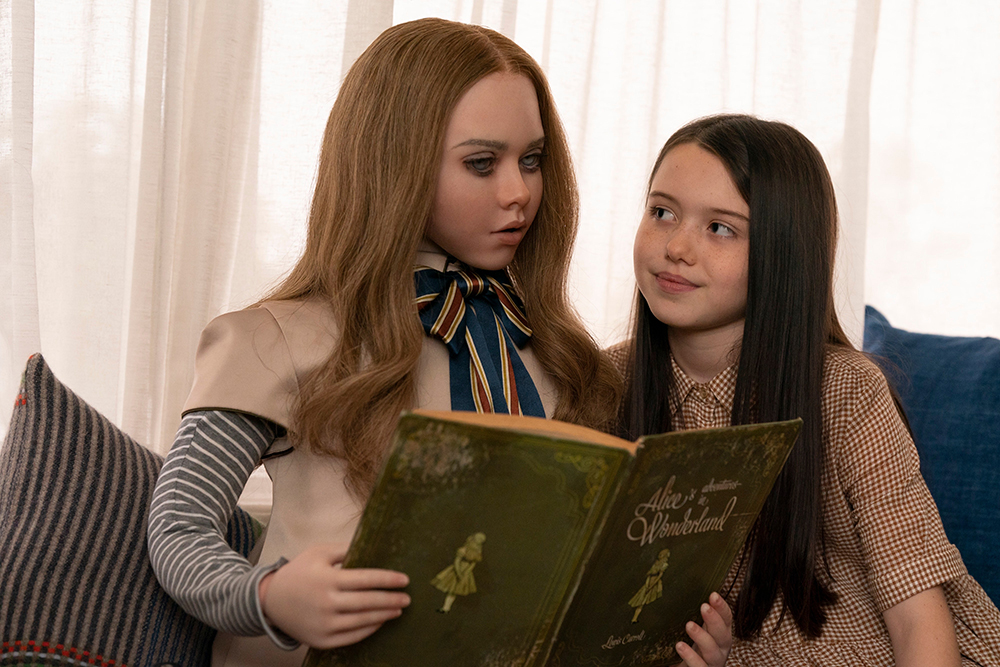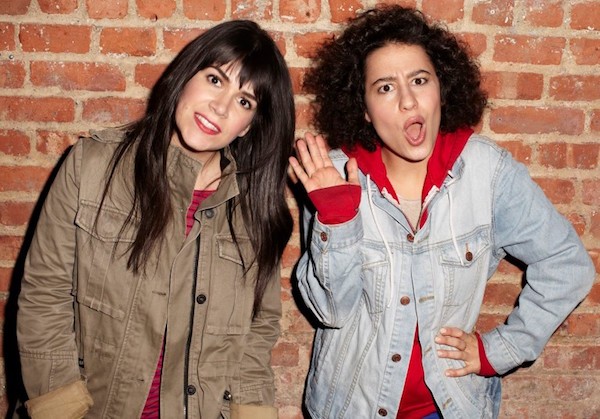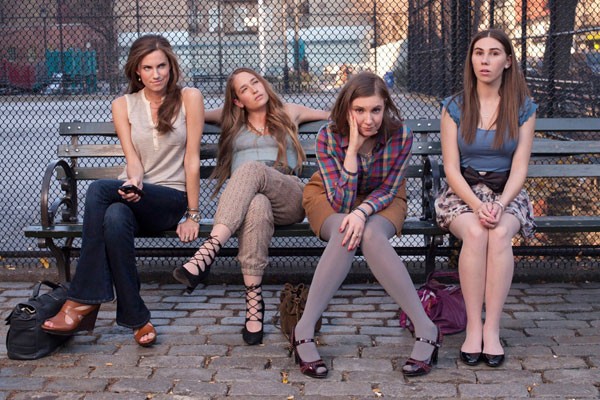Just before M3GAN kills her first human, the annoying neighbor Celia (Lori Dungey) asks, “What are you?”
M3GAN pauses. “I’ve been asking myself that same question,” she says, before blasting Celia in the face with a pressure washer.
Technically speaking, M3GAN is the first Model 3 Generative ANdroid, created by Gemma (Allison Williams), a roboticist working for the toy company Funki. Gemma is under pressure to update Funki’s Furby-like flagship toy, but M3GAN is her passion project — not so much a talking doll as a fully realized android companion for a middle-schooler, what Douglas Adams would call “your plastic pal who’s fun to be with.”
When her niece Cady (Violet McGraw) is orphaned in a car crash, Gemma, an unapologetic career woman, is forced to take a crash course in single parenting. Ever the technologist, she sees the situation as an opportunity to test out her invention. After a late-night crunch session, she introduces Cady to M3GAN. They bond immediately, thanks to M3GAN’s reactive learning software protocols.
One of the things I love about a well-made horror film is how it plays with the information imbalance between the audience and the characters. We all know that we bought a ticket to a killer robot movie, but Gemma doesn’t know she’s inventing a killer robot. When she boasts that M3GAN is programmed to prevent Cady from all harm physical and emotional, then teaches the robot what death is, then offhandedly remarks that she didn’t have time to install the parental controls, we know what’s coming next.
But it is M3GAN’s question — “What am I?” — that shows M3GAN is smarter than a killer doll movie from the makers of Annabelle has any right to be. Screenwriter Akela Cooper crafts a dilemma for her monster that is straight out of Isaac Asimov. Gemma thinks of her creation only as a robot, but to Cady, she’s a real girl — a best friend to sing along to pop songs with, a friend who is also an excellent therapist. At one point, a tech says M3GAN is not sentient because her speech is just a “curated word salad” designed to create the illusion of meaning in the listener. But when Gemma’s boss David (Ronny Chieng) asks for “a list of things I can say to the board to make me sound intelligent,” no one questions his personhood. And after all, M3GAN’s belief that she can take better care of Cady is not delusional, since Gemma objectively sucks as a caregiver. It’s just that M3GAN’s vision of parental responsibility comes with a high body count.
Director Gerard Johnstone and producers James Wan and Jason Blum perform a tonal tightrope walk worthy of John Carpenter. They admit the premise is a little silly with a few sly winks at the audience; then they reel you in. Allison Williams is pitch-perfect, pivoting from likable to cold on a dime, as the scene requires. The character of M3GAN is constructed with puppetry, Jenna Davis’ delightfully unhinged voice work, and an inspired physical performance by 12-year-old dancer Amie Donald.
Now if you’ll excuse me, I have to go work on my “M3GAN was right!” memes.
M3GAN
Now playing
Multiple locations



